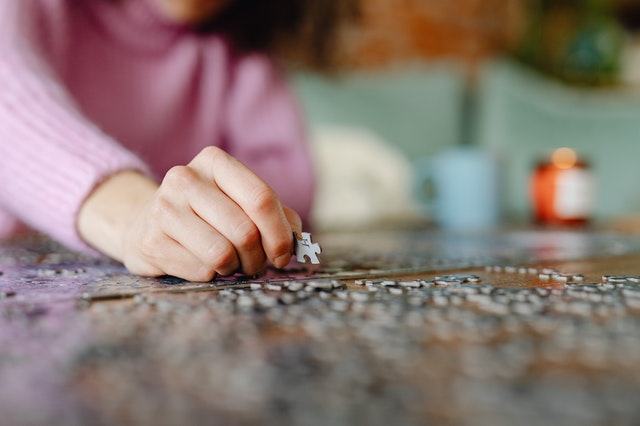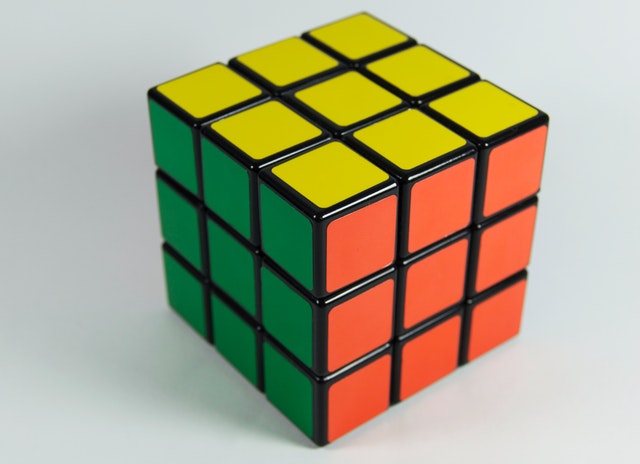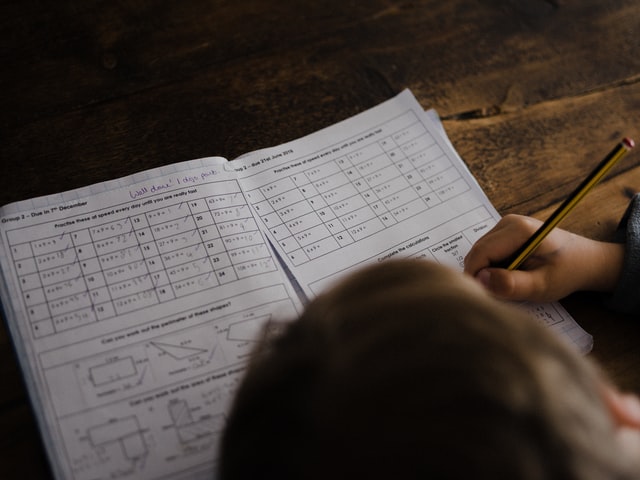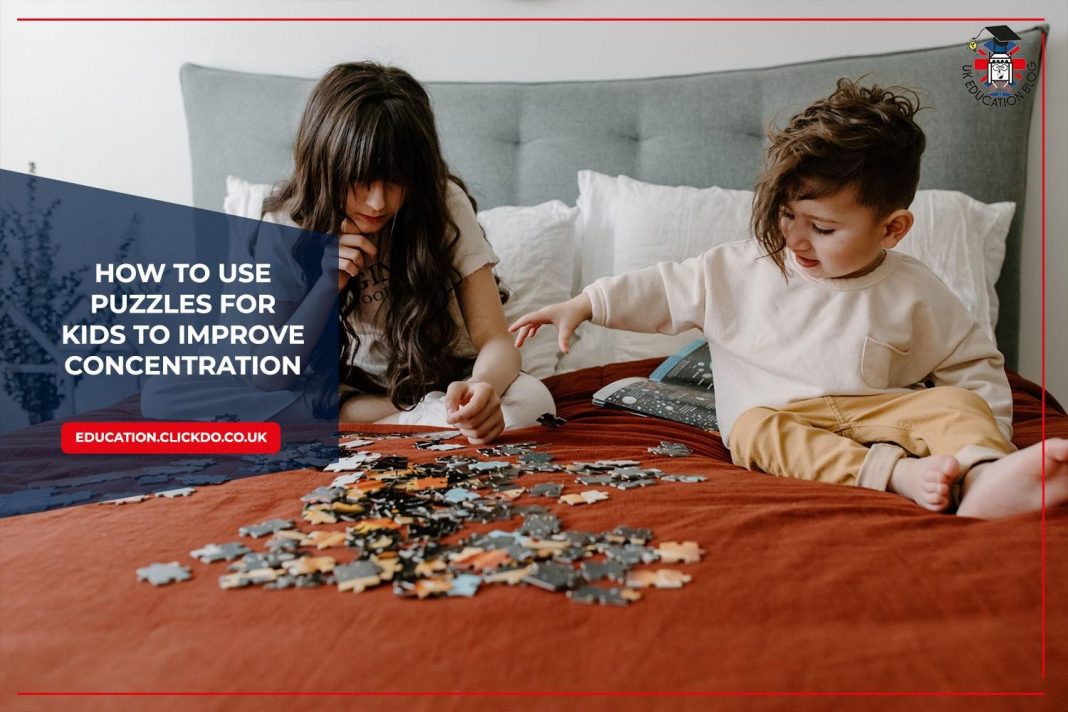Kids are highly impressionable. What they learn in their formative years stays with them for life.
But this does not mean that they should be boxed in a cubicle and taught Quantum Physics. As they are blessed with imagination, their learning process should include fun and engaging activities.
However, this is sometimes a task for parents, teachers, and caregivers because they get distracted easily.
The short attention span is just their way of processing their environment. Their curiosity often causes distractions, but you can use their inquisitiveness to improve their concentration with the right tools such as puzzles.
Puzzles help in children’s cognitive development, and since you must put effort into solving them continuously, they help in improving concentration. There have been numerous studies that support this claim.
Different Types of Puzzles
Puzzles come in different formats and are appropriate for children of all ages. Every puzzle is designed to teach something unique to the participant.
Since puzzles are helpful for everyone, you can choose the one suitable for your child’s age and interests.
Here is how different types of puzzles help children:
1. Jigsaw Puzzles for Kids

Jigsaw puzzles are among the most engaging puzzles beneficial for kids of all ages, even adults. These puzzles are made of pictures printed on cardboard, paper, or wood cut out in different formats. You must find the pieces that fit together and form a meaningful concept. These puzzles can be as easy as putting together a cut-out picture of a circle and as tricky as fixing the painting of Picasso. Their range of difficulty is the reason for their popularity.
Jigsaw puzzles promote memory and cognitive skills as kids use reasoning skills and adaptable thinking. They must look at the puzzle pieces, focus on their shape and colour and memorise them. They must actively push their brains to look for details that fill a gap. This helps them with abstract thinking and encourages concentration. Jigsaw puzzles are great for autistic children as well.
2. 3-D Puzzles for Kids

A 3-D puzzle is like a jigsaw puzzle as it also has printed cut-outs that need to be put together, but the outcome is considerably different. As the name suggests, you get to build a three-dimensional structure with it. Since the difficulty level of a 3-D puzzle is comparatively higher than a jigsaw puzzle, it is more suited for older kids.
Solving a 3-D puzzle requires time, patience, and concentration. This is why it is often done in groups, which teaches teamwork. Children are required to look at the 2-D image of the puzzle use their imagination, problem-solving abilities, and mathematical logic to build its 3-D version. They get encouragement as they see an image come to life in front of them. This motivates them further, and they concentrate more on completing the project.
Pro tip: If your child has a favourite fantasy book, you can look for 3-D puzzles associated with it. For example, if your child likes Harry Potter, get them a 3-D puzzle of Hogwarts.
3. Maths Puzzles for Kids

Maths puzzles are often associated with encouraging logical thinking, abstract thinking, critical thinking and more.
Math puzzles help in more than just the development of mathematical memory; they also foster critical thinking skills and problem-solving abilities, which are crucial for effective math learning.
There are different maths puzzles, such as Sudoku, KenKen, Magic Squares, riddles, word-search style puzzles and geometric puzzles. Each of these puzzles, irrespective of their level, requires concentration. Even if the puzzle is oral, the kid must concentrate on listening to it, process it, and develop a solution. Math puzzles are all-rounders as they are educational and help improve concentration among children.
More Advantages of Puzzle Games for Kids
Mentions of puzzles have been found even in the Bible. They were part of the ancient world, and their advantages extend beyond improving concentration among kids. In addition to exercising both the left and the right side of the brain, they are a great source of entertainment for the entire family.
Here are some other benefits of puzzles:
- Puzzles improve both short-term and long-term memory by connecting existing brain cells and helping form new ones.
- Puzzles promote critical thinking.
- Puzzles help in building problem-solving
- Puzzles encourage abstract thinking
- Puzzles improve spatial thinking
- Puzzles promote team building
- Puzzles act as mood enhancers
- Puzzles add to your IQ score
Puzzles are often associated with learning and brain development. These two advantages are helpful in the medical field as well. Medical professionals often use different kinds of puzzles such as cross word puzzles for helping children who are dealing with medical conditions, especially autism. Given the current circumstances where children cannot go outside and play freely, puzzles can come in handy. They help in entertaining children and act as mood enhancers.
Lack of concentration and interest among kids is natural. Any new addition or subtraction to their environment can distract them. As they learn to become more comfortable with the changes in their surroundings, they find it easier to concentrate. However, this understanding needs to be taught.
With the help of puzzles, you can create an unfamiliar but controlled environment for your kids. Puzzles will channel their curiosity and the desire to explore something new, helping them improve concentration.







